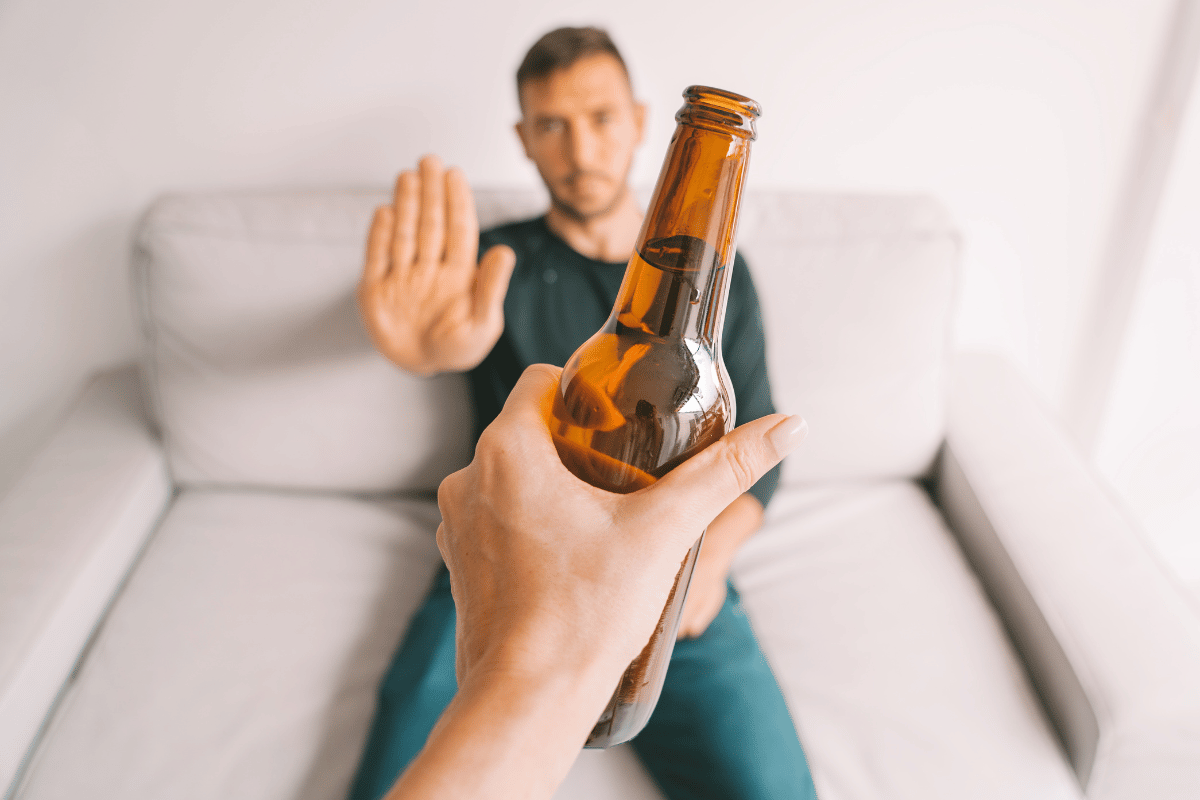
We all know that alcohol can have effects on the body, but not many of us stop to think about how it impacts our teeth and gums. Whether it's a glass of wine with dinner, a beer while watching the footy, or a cocktail at a weekend BBQ, alcohol can affect your oral health in ways you might not realise.
Let's check out how alcohol affects your teeth and gums and what you can do to protect that smile.
The Hidden Effects of Alcohol on Your Teeth and Gums
Every habit has an effect on our body and when it comes to eating or drinking, it impacts on our oral health. Let’s look atsome of the risks of alcohol consumption on your teeth and gums.
1. Dry mouth (Xerostomia)
One of the most common side effects of alcohol is dry mouth. Alcohol reduces the amount of saliva your mouth produces. Why does that matter? Well, saliva is your mouth’s natural defence – it helps wash away food and neutralise acids produced by bacteria. Less saliva means more plaque build-up, which can lead to cavities and gum disease.
2. Increased risk of cavities
Many alcoholic drinks, particularly cocktails and sweet wines, are packed with sugar. The bacteria in your mouth love sugar – they feed on it and produce acid, which eats away at your tooth enamel. Even drinks that aren’t sugary, like beer or spirits, can still cause trouble because of their acidity, which wears down your enamel over time.
3. Gum disease
Alcohol doesn’t just harm your teeth – it can also be rough on your gums. Regular alcohol consumption can lead to inflammation of the gums, which can develop into gum disease (periodontitis). If it gets worse, it can cause your gums to recede, leaving your teeth more vulnerable to decay and infection. Not something you want to mess with!
4. Higher risk of mouth cancer
Alcohol is a known risk factor for oral cancer. Over time, heavy drinking can damage the cells in your mouth, making them more likely to develop cancer. If you combine drinking with smoking, the risk goes up significantly. It's important to keep an eye out for any unusual changes in your mouth and get regular checks from your dentist.
5. Stained teeth
Ever noticed how red wine or dark beer can leave your teeth looking a bit stained? Alcoholic drinks, especially the darker ones, can cause your teeth to become discoloured over time. The acids in alcohol weaken your enamel, making it easier for stains to stick. If you’re worried about keeping your teeth white, it might be worth cutting back on those darker drinks.
What can you do to minimise the impact?
If you enjoy the occasional drink but don’t want to damage your teeth, here are a few simple tips:
- Drink water with your alcohol: Water helps rinse away sugars and acids, reducing the damage to your teeth.
- Use a straw: If you’re drinking cocktails or mixers, a straw can help minimise the contact between the alcohol and your teeth.
- Brush and floss regularly: This one’s a no-brainer, but maintaining good oral hygiene is key to protecting your teeth from the effects of alcohol.
- Go easy on sugary mixers: Stick to low-sugar options like soda water to reduce the risk of cavities.
- See your dentist regularly: Routine dental check-ups can help catch any early signs of damage and keep your oral health on track.
Final Thoughts
Alcohol is a part of many social occasions, but it’s important to understand the impact it can have on your oral health. With a few simple habits, you can protect your teeth and gums without giving up your favourite drink entirely. If you’re worried about how your drinking habits are affecting your oral health, don’t hesitate to have a chat with your dentist – they’ll have the best advice for keeping your smile healthy.
If you're in Deniliquin or Finley and need expert dental care, the Local Dental Clinic is here to help. Our team of expert dental practitioners is dedicated to keeping your teeth and gums in top shape. Call us today to book your appointment!
Go Back

















